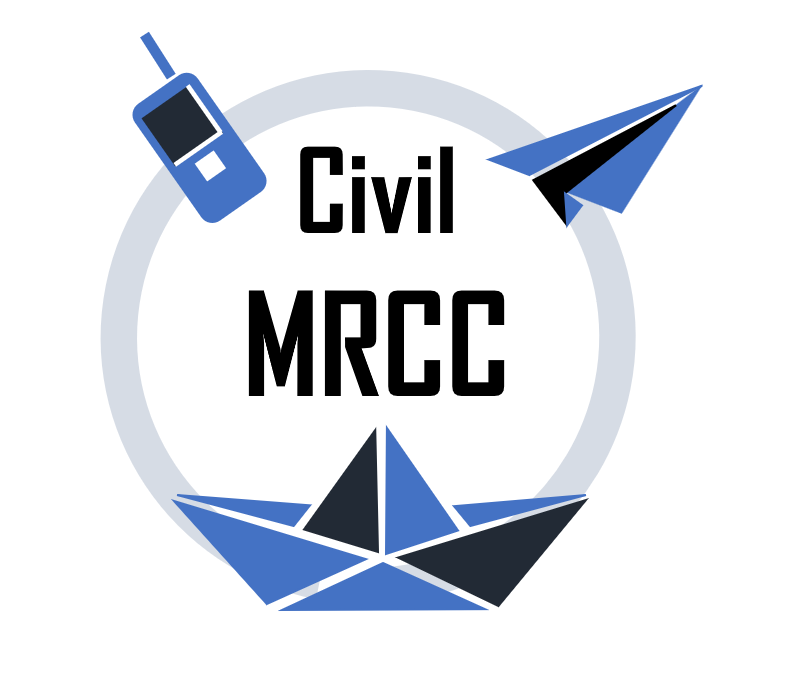On the illegitimacy of the NGO ships’ seizures
The criminalization of civil relief in Italy is by no means new. Since 2017, it has been carried out by successive governments of all orientations, through a multiplicity of instruments. From media defamation to the imposition of codes of conduct, from administrative to criminal prosecution, the work of NGOs has been constantly instrumentalized for political purposes, in the context of widespread anti-immigration sentiments.
As is well known, the criminalization of civil society engaged in sea rescue is only the tip of an iceberg, underlying which there are thousands of cases of criminalization of people on the move, accused of guiding boats across the Mediterranean, of murders in the event of shipwrecks, who often have little access to defense, and continue to be instrumentalized to mask state responsibility for deaths at sea.
As of January 2023, the Piantedosi decree, later converted into law 15/2023, was the main regulatory framework ‘justifying’ the criminalization of SAR NGOs. It introduced several provisions, the combined reading of which justified the so-called ‘distant ports strategy’, and the limitation of NGOs’ autonomy in the central Mediterranean.
From the criterion of ‘returning to port after each rescue’, to the allocation of ‘distant ports’ days, to possible sanctions for ‘lack of cooperation’ with the Libyan authorities, the objective was clear: to keep NGOs away from thor operational area, silencing critical voices and erasing the critical gaze on border violence and human rights violations.
Despite the letter by the Commissioner of the European Council, asking Italy to consider “withdrawing the Decree-Law, which could hamper NGO search and rescue operations at sea” – as well as to suspend cooperation with the Libyan Government on interceptions at sea, as set out in her Recommendation on the Central Mediterranean, the Law Decree 1/2023 was converted into Law 15/2023.
As highlighted by SAR NGOs in a joint statement launched in February 2024, 1-year efforts by the Italian government to obstruct search and rescue activities resulted in increased endangering people’s lives:
“Since February 2023, nine NGO rescue ships have been detained by Italian authorities on 16 occasions, amounting to more than 300 days of being kept from the sea and prevented from assisting people in distress”. In addition, they “were forced to travel more than 150,500 extra km to reach distant ports – equivalent to traveling more than three and a half times around the world, and translating into at least 374 unnecessary days of navigation, compared with disembarkation in closer available ports in Sicily and Lampedusa”, the statement says.
In 2024, the legal battleground continues, and some positive results were achieved. Following appeals submitted by several NGOs, from SOS Mediterranee to SOS Humanity, until Sea Watch and Sea-Eye’s, against seizures issued by Italian authorities based on the so-called Piantedosi Decree, southern Italian courts – such as Brindisi, Crotone, Reggio Calabria and Ragusa – decided to suspend vessels seizures for a variety of reasons.
Amongst these very powerful and courageous decisions – that of Brindisi looks extremely interesting.
According to Brindisi Judge Roberta Marra, “the administrative seizure […] undermines in an irreversible way SOS Mediterranée Ocean Viking’s right to exercise their own activity of rescue at sea, in which its social goals are realized […] in acts, namely Prevent the loss of life, Enhance safety at sea, Alleviate human suffering, Enhance response to distress calls, Enhance operational cooperation, Share and exchange information, Advocate for adherence to international maritime law obligations and principles applicable to rescue obligations at sea for the achievement of the above goals.”
In addition, after acknowledging the undiscussed value of these goals and their full consistency with Constitutional values and of consuetudinary international law to which Italy adheres according to the art. 117 of the Constitution, which is called to promote – Brindisi Judgement highlights how the seizure generates the “impossibility for SOS Med to exercise the inviolable rights it has”.
In particular, it concludes by enumerating some inviolable rights (art. 2) enshrined in the Italian Constitution which (also) NGOs are entitled to, which would be violated by the refusal (inibiti dal divieto) to continue its search and rescue activity, such as the freedom of economic initiative (art. 41), the freedom of expression (art.21) or the freedom of association (art. 18).
This formulation looks extremely powerful and represents a step “beyond” the – nonetheless fundamental – results that were previously achieved in the frame of legal struggles for de-criminalization of civil rescue at sea.
While in the Open Arms, Sea Watch (so-called Carola Rackete case), and Mediterranea prosecution, the decriminalization of NGO’s acts of “civil disobedience” was grounded on their fulfillment of the “duty to rescue”, which could be considered completed only after the disembarkation in a place of safety, which could not be neither Libya nor the rescue ship itself, Brindisi decision on the illegitimacy of the Ocean Viking seizure, seems to be grounded on an unprecedented juridical formulation, namely the “civil right to perform search and rescue activities at sea”, as arising from the Italian constitution.
Chiara Denaro

Picture: SOS Méditerranée



